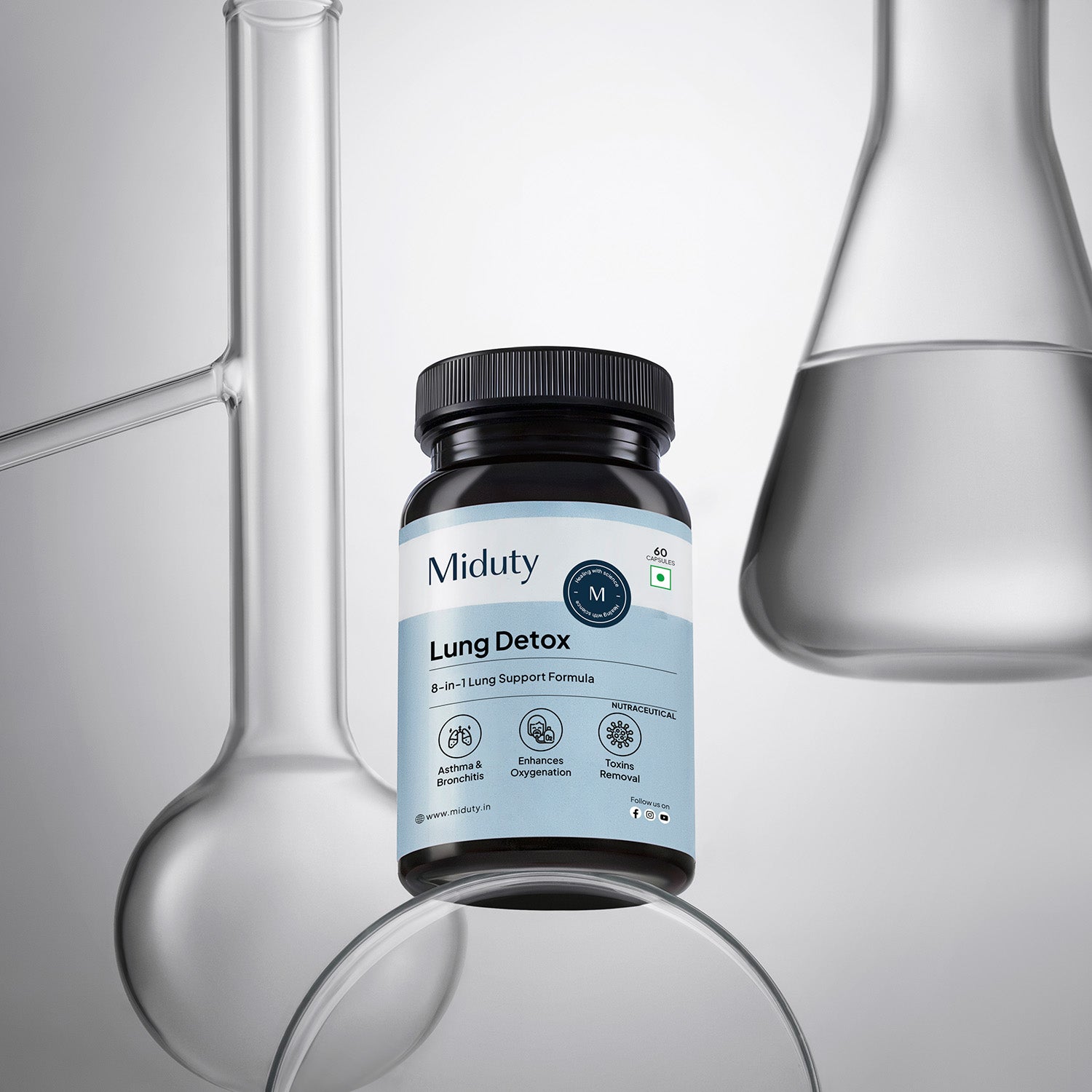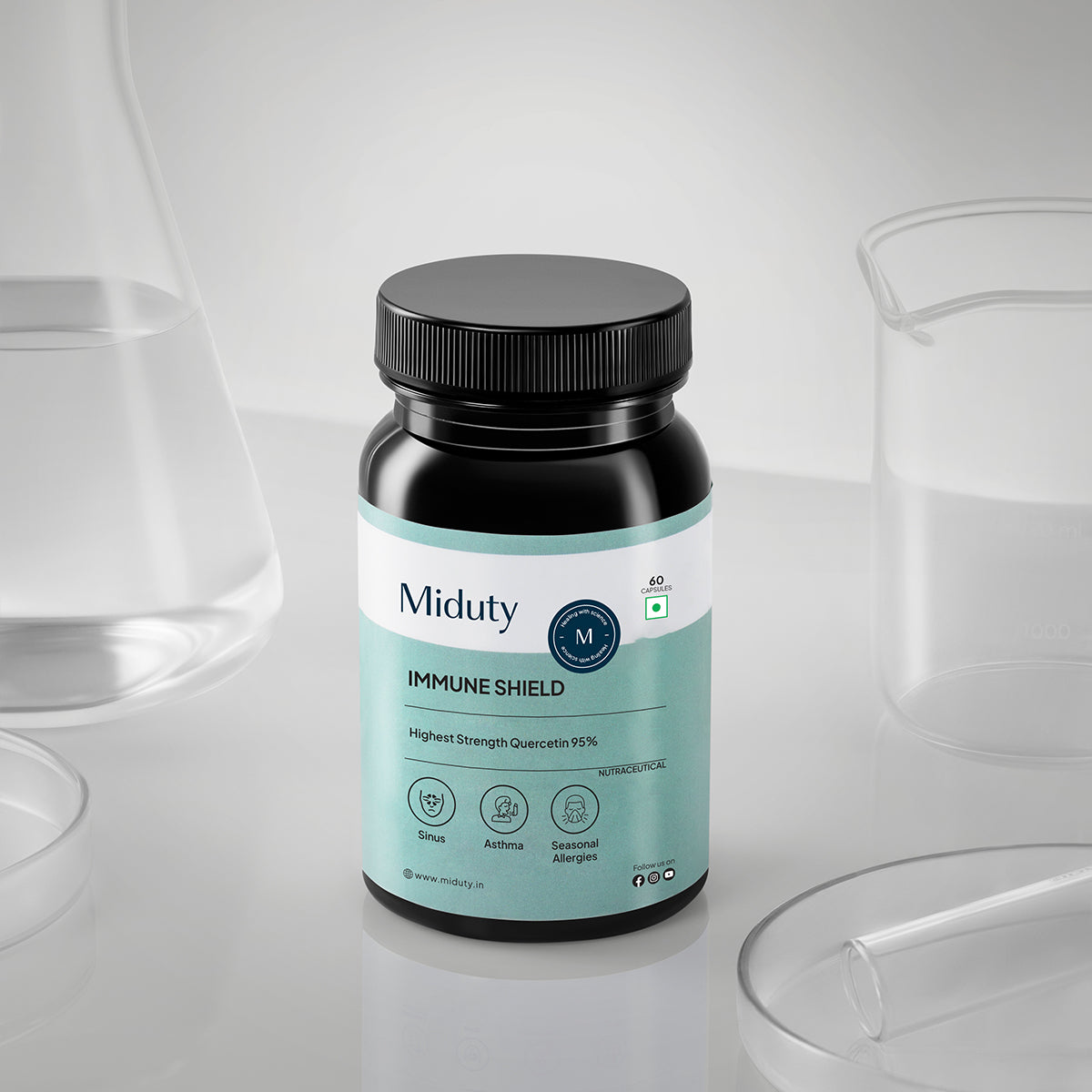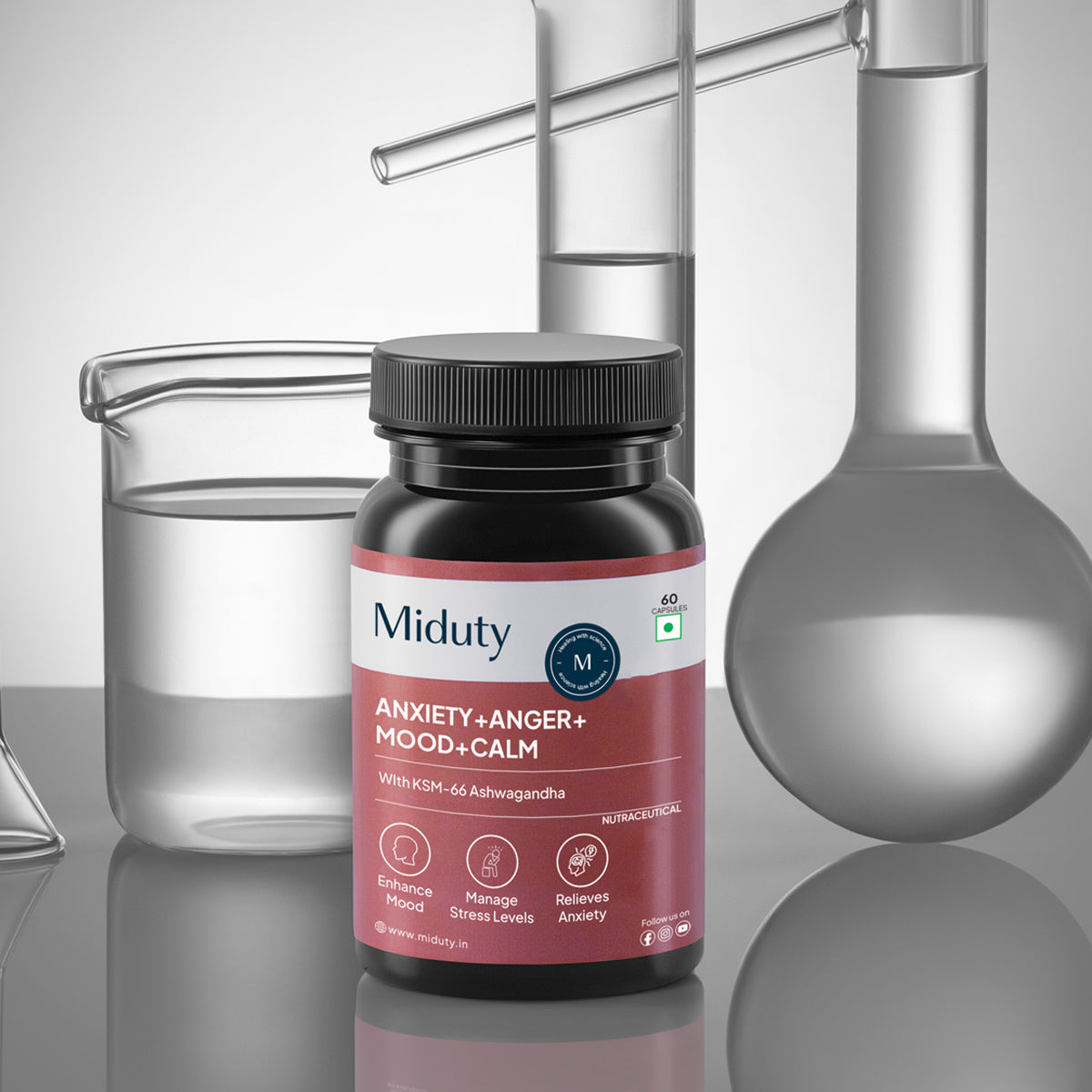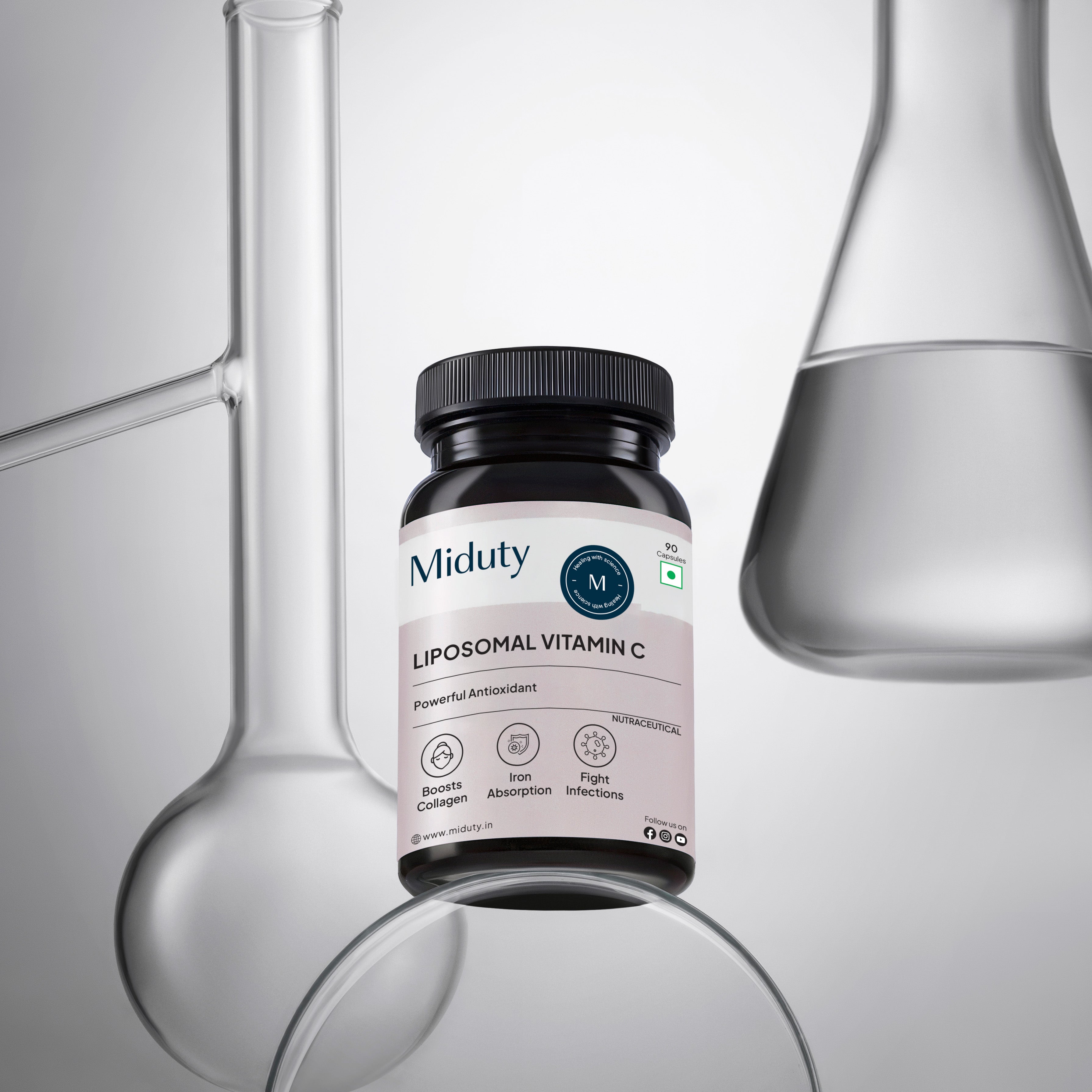
10 Amazing Health Benefits of Mulethi or Licorice Root
When it comes to natural remedies that have stood the test of time, few herbs are as cherished as mulethi (licorice). Known for its sweet taste and medicinal properties, mulethi (licorice) has been used in Ayurveda, Traditional Chinese Medicine, and even ancient Egyptian medicine for thousands of years. This humble root is packed with bioactive compounds that provide a wide range of health benefits, from soothing sore throats to supporting digestive and respiratory health.
In this blog, we'll explore the top mulethi or licorice root benefits, its uses in Ayurveda, and how you can incorporate it into your daily life.
Key Takeaways
1. Mulethi is more than a sweet root – it's a powerhouse of healing with benefits for throat, digestion, skin, hair, and immunity.
2. Sip it, apply it, or mix it – from soothing teas to face packs and hair masks, mulethi fits easily into daily wellness rituals.
3. An Ayurvedic adaptogen – mulethi helps your body fight stress, fatigue, and even supports women's hormonal balance.
4. Good for the gut and the heart – mulethi calms acidity, supports digestion, and protects cardiovascular health naturally.
5. Sweet, but not without caution – enjoy mulethi in moderation, as overuse can raise blood pressure and cause imbalances.
What is Mulethi (Licorice)?
Mulethi, also known as licorice root or Yashtimadhu in Ayurveda, is a powerful medicinal herb widely used in traditional Indian and Unani medicine. Derived from the roots of the Glycyrrhiza glabra plant which is nearly 50 times sweeter than sugar, making mulethi (licorice) a common natural flavoring agent in herbal teas, candies, and medicines to support overall health.
For centuries, it has been valued for its soothing, antioxidant, and anti-inflammatory properties. Mulethi is commonly used to relieve sore throat, cough, respiratory issues, digestive problems, and skin concerns. Its bioactive compounds, including glycyrrhizin, flavonoids, and saponins, make it one of the most important herbs in both home remedies and Ayurvedic formulations.
In addition to its medicinal benefits, mulethi is also a natural flavoring agent used in teas, herbal powders, and supplements. Because of its wide range of uses, mulethi is often referred to as a "treasure herb" for immunity and wellness.
Nutritional Value of Mulethi (Licorice Root)
Apart from its medicinal benefits, mulethi also provides essential nutrients that contribute to overall wellness. Here's a detailed look at the nutritional value of 100 grams of mulethi powder/root:
|
Nutrient |
Amount (per 100g) |
|
Calories |
375 kcal |
|
Carbohydrates |
93 g |
|
Sugar |
5 g |
|
Fiber |
0 g |
|
Protein |
0 g |
|
Fat |
0 g |
|
Sodium |
50 mg |
|
Potassium |
0 mg |
|
Calcium |
50 mg |
|
Iron |
5 mg |
|
Magnesium |
20 mg |
|
Phosphorus |
50 mg |
Health Benefits of Mulethi or Licorice Root
1. Relieves Sore Throat and Cough
One of the most popular mulethi benefits is its effectiveness in treating cough, cold, and throat irritation. Its anti-inflammatory and soothing nature helps coat the throat, reducing dryness and hoarseness. Drinking mulethi tea or chewing small pieces of the root provides quick relief from sore throat, congestion, and dry cough.
2. Improves Digestion
Ayurveda recommends mulethi for various digestive problems. Its anti-ulcer and anti-inflammatory compounds make it a natural remedy for acidity, constipation, indigestion, and gastric ulcers. Mulethi also promotes the growth of healthy gut bacteria and regulates stomach acid, ensuring better digestion.
3. Promotes Healthy Skin
Mulethi (licorice) isn't just beneficial internally—it's also a natural skincare ingredient. Thanks to its antioxidant and antimicrobial properties, mulethi (licorice) is widely used in Ayurvedic face packs, creams, and oils.
It helps reduce pigmentation, lighten dark spots, soothe inflammation, fight acne-causing bacteria, and provide a natural glow. Applying mulethi (licorice) powder mixed with honey, milk, or rose water can rejuvenate dull skin.
4. Strengthens Hair
Mulethi is a trusted Ayurvedic remedy for hair problems like dandruff, hair fall, and scalp irritation. It nourishes the scalp, strengthens roots, and promotes hair growth. A traditional remedy is to mix mulethi powder with coconut oil or curd and apply it to the scalp for strong, shiny hair.
5. Boosts Immunity
Mulethi is packed with antiviral, antibacterial, and anti-inflammatory properties that strengthen the immune system. It helps the body fight seasonal infections and maintain natural defense mechanisms. Consuming mulethi tea regularly is a simple way to improve immunity.
6. Supports Weight Loss
Mulethi may also play a role in healthy weight loss. Its bioactive compounds help regulate metabolism, reduce cravings, and prevent fat accumulation. When combined with a balanced diet and exercise, mulethi tea can aid in weight management.
7. Benefits Women's Health
Ayurveda regards mulethi as especially beneficial for women. It helps ease menstrual cramps, reduce menopausal symptoms like hot flashes and mood swings, and supports hormonal balance. Its mild estrogen-like effect also contributes to better reproductive health.
8. Relieves Stress and Fatigue
In Ayurveda, mulethi (licorice) is classified as an adaptogen, meaning it helps the body cope with stress and fatigue. Consuming mulethi (licorice) regularly can reduce anxiety, promote relaxation, and improve mental clarity.
9. Supports Heart Health
Thanks to its rich antioxidant profile, mulethi helps protect the heart by reducing cholesterol, improving blood circulation, and lowering oxidative stress. This in turn supports overall cardiovascular health.
10. Supports Hormonal Balance
Mulethi also plays a role in maintaining hormonal balance, particularly in women. Its compounds help regulate cortisol (the stress hormone), reduce PMS symptoms, and promote overall endocrine health.
Mulethi Names in Different Languages
Mulethi, or licorice root, is a widely used medicinal herb in Ayurveda and Unani medicine. It is known for its sweet taste, soothing properties, and therapeutic benefits. Across India and other regions, mulethi is called by different names in local languages. Knowing these names can be useful when searching for herbal remedies, Ayurvedic formulations, or regional products that contain this powerful root.
Here are the common names of Mulethi (Licorice Root) in various Indian languages:
|
Language |
Local Name for Mulethi |
|
Sanskrit |
Yashtimadhu |
|
Hindi |
Mulethi |
|
Tamil |
Athimadhuram |
|
Telugu |
Yashtimadhuka |
|
Malayalam |
Irattimadhuram |
|
Kannada |
Jeshtamadhu |
|
Bengali |
Josthimodhu |
|
Marathi |
Jeshthamadh |
|
Urdu |
Mulethi |
|
Gujarati |
Jethimadh |
Why Mulethi Has Different Names?
The diversity of names reflects the widespread use of Mulethi in Indian traditional medicine systems like Ayurveda, Siddha, and Unani. Despite language variations, all these terms point to the same herb—famous for its anti-inflammatory, antioxidant, and immune-supporting properties.
Whether you call it Yashtimadhu, Athimadhuram, or Jethimadh, Mulethi remains one of the most trusted herbs for respiratory health, digestion, skin care, and overall wellness.
How to Use Mulethi (Licorice Root)?
There are several easy ways to incorporate mulethi (licorice) into your daily routine:
1. Mulethi Tea: Boil a small piece of mulethi (licorice) root in water and drink as a soothing tea.
2. Mulethi Powder: Mix with honey, ghee, or warm water for internal use.
3. Face Pack: Combine mulethi (licorice) powder with turmeric and rose water for glowing skin.
4. Hair Pack: Apply mulethi (licorice) paste with curd for strong, dandruff-free hair.
5. Oral Supplements: Mulethi is also available in capsules, tablets, and liquid extracts, making it easy to consume in a standardized dose for immunity, digestion, and respiratory health. Always follow dosage instructions and consult a healthcare professional before regular use.
Side Effects and Precautions
While mulethi (licorice) offers numerous health benefits, it should be consumed in moderation. Excessive use may lead to:
- High blood pressure
- Water retention
- Low potassium levels
- Hypertention
- Hormonal Impact
Pregnant women, people with heart or kidney conditions, and those on medication should consult a healthcare professional before using mulethi or licorice root.
What is the Best Licorice Supplement?
When choosing a licorice supplement, it's best to look for a blend that combines licorice extract with other synergistic nutrients. Licorice works well with antioxidants and anti-inflammatory compounds to support immune balance and skin health.
A high-quality option is a formula that pairs Licorice Extract with N-Acetyl Cysteine (NAC), Quercetin, and Stinging Nettle. This combination helps reduce oxidative stress, calm inflammation, and support the body's natural defenses. Together, these ingredients may be especially beneficial for those managing autoimmune-related conditions, including vitiligo.
Conclusion
From ancient Ayurveda to modern wellness, mulethi (licorice) has remained a trusted herb for health and healing. Whether you're looking to soothe a sore throat, improve digestion, rejuvenate skin and hair, or boost immunity, mulethi (licorice) can be your natural ally.
Incorporating this sweet root into your lifestyle in safe amounts can bring you closer to holistic well-being. Just remember, moderation is key—enjoy the mulethi (licorice) benefits mindfully for long-term health.
Frequently Asked Questions on Mulethi or Licorice Benefits -
Q1. Can we take mulethi daily?
Mulethi (licorice root) can offer several health benefits, but taking it every day for a long period is not advised unless recommended by a healthcare professional. Using it occasionally is generally safe, but overuse or prolonged intake may cause unwanted side effects.
Q2. Is mulethi good for skin whitening?
Yes, mulethi (licorice root) is widely valued in skincare for its natural brightening properties. It helps fade dark spots, pigmentation, and blemishes while promoting an even skin tone. Thanks to its anti-inflammatory compounds, mulethi also soothes the skin, making it a popular choice in clean and herbal beauty formulations today.
Q3. Is mulethi good for hair?
Yes, mulethi (licorice root) is considered highly beneficial for hair health. It is packed with compounds like flavonoids, phytoestrogens, and glycyrrhizin that help nourish the scalp, strengthen hair follicles, and support overall hair growth. These nutrients not only improve hair texture but also promote stronger, healthier strands naturally.
Q4. Does licorice make you sleepy?
Licorice itself is not directly known to cause sleepiness, but one of its possible side effects is fatigue or tiredness. Regular or excessive intake of licorice may also lead to higher blood pressure, low potassium levels, water retention, irregular menstrual cycles, headaches, and reduced libido. These imbalances in the body can indirectly make you feel weak, drained, or less energetic.
Q5. Who should avoid licorice?
Consuming more than five grams of licorice daily for several weeks may trigger serious side effects, including an increased risk of heart complications. Individuals with high blood pressure, heart disease, or kidney problems are especially vulnerable. Regular intake of licorice in forms such as candies, teas, or lozenges can also lead to harmful reactions and should be limited or avoided by these groups.
References












